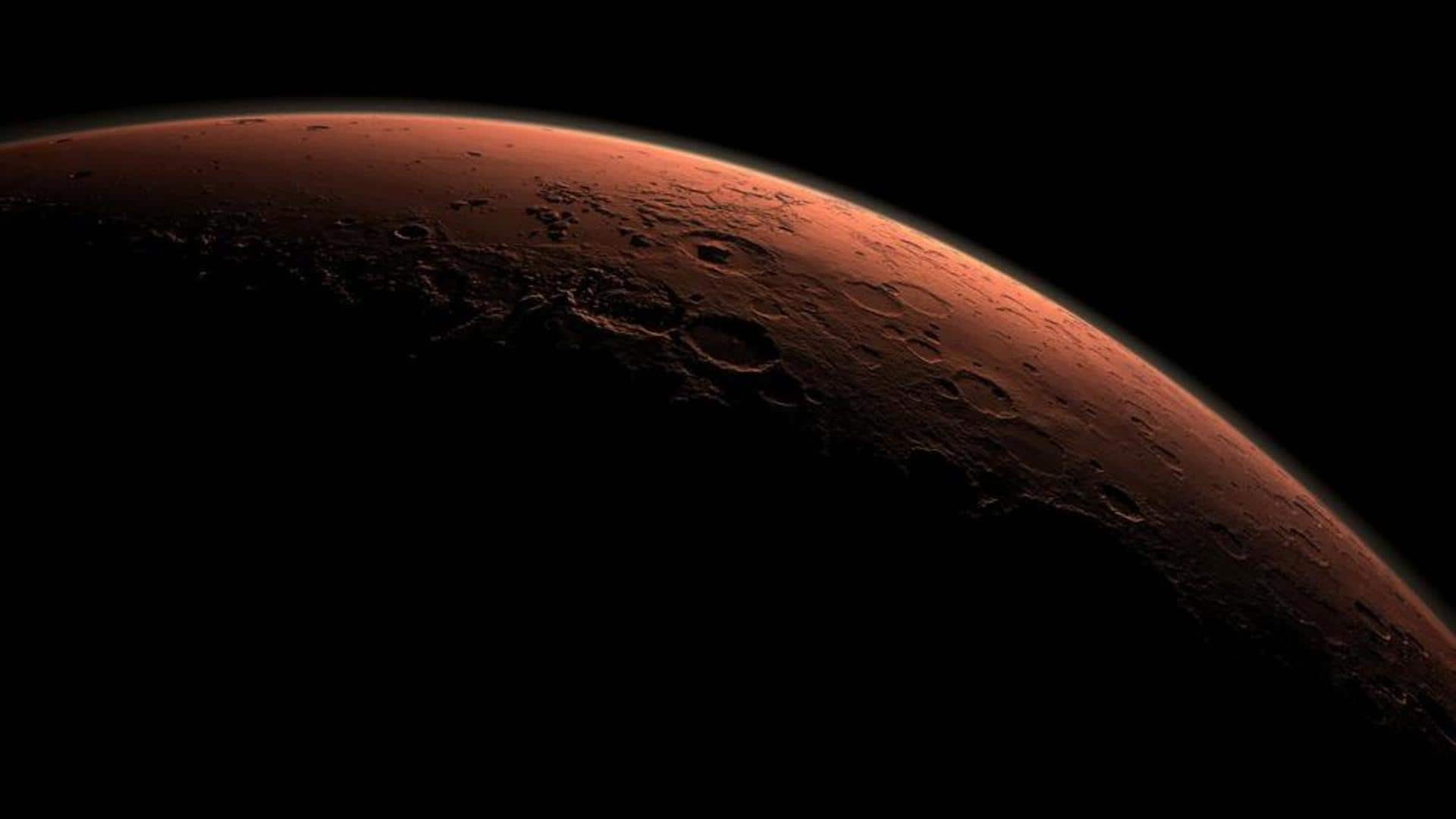
New study sheds light on the habitability of Mars
What's the story
A new study provides key insights into the conditions that could have supported life on Mars. Researchers from the University of Calgary have found the chemical reactions on ancient Mars were capable of generating sufficient hydrogen to establish a "planet-warming greenhouse effect." This, in turn, might have allowed the now-barren Red Planet to have running water, ultimately providing habitable conditions.
Context
Why does this story matter?
The search for life on Mars has been leading to interesting results of late. A recent study, based on data from the Perseverance Rover, provided more clues on the presence of water and volcanic history on Mars. Now, the latest study helps explain how liquid water, which has been found through orbiter and rover missions on Mars, could have come into existence.
Study
Rocks found in Minnesota were similar to those on Mars
The research for the new study began about six years ago. Benjamin Tutolo, from UCalgary, realized that rocks sampled near Duluth, Minnesota were similar in composition to rocks found on Mars. These rocks were rich in iron. The researchers discovered that the iron-rich rocks generated around five times more hydrogen, which is more than enough to establish habitable conditions on ancient Mars.
Process
It's believed that the same serpentinization process occurred on Mars
On Earth, rocks from the mantle undergo a process called serpentinization when they come into contact with water. This process generates hydrogen, which, when combined with other gases in the atmosphere, can generate a strong greenhouse effect. This could thereby help trap more heat from the Sun. Scientists believe the same process could have taken place on Mars some 3.5 billion years ago.
Official words
"The reaction goes like gangbusters and that reaction produces hydrogen"
Tectonic processes on Earth, like mid-ocean ridges and volcanoes, have brought olivine-rich rocks up to the surface, explained Tutolo Whenever these rocks "come into contact with water, the reaction goes like gangbusters and that reaction produces hydrogen." The reaction also produces "unique minerals and reduced organic compounds that could then fuel ecosystems and combine with other ingredients to form the building blocks of life."
Evidence
Curiosity Rover and Perseverance Rover have found evidence of water
NASA's Curiosity Rover and Perseverance missions have found "ample evidence" of water on Mars. According to Tutulo, the study will help "interpret the extraordinary discovery by Perseverance that there are olivine-rich igneous rocks" present at the Jezero Crater on the Red Planet. The Martian samples collected by the rover will be brought back to Earth via the Mars Sample Return (MSR) campaign.
Future studies
Scientists will also probe why Mars is no longer warm
In future studies, scientists will look for possible causes for the absence of hydrogen and water on Mars. For that, they will first have to understand how the process of generating hydrogen and stabilizing liquid water on Mars would have worked. Another key question they are going to tackle is why Mars is not warm any longer.
Information
Geological processes on Mars can provide clues to climate change
Tutolo believes that geological processes on Mars can lead to a better understanding of our home planet, including the climate change we are currently experiencing. "All this we can begin to understand by looking at the history of our solar system as recorded on Mars."